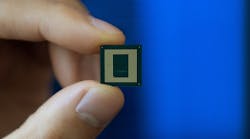Arm said that it has filed a lawsuit against Qualcomm, alleging that the smartphone chip giant and its recently acquired Nuvia subsidiary breached a licensing agreement and infringed on its trademarks.
In its lawsuit, the semiconductor designer is looking to force Qualcomm to discard the designs developed under Nuvia’s license agreements with Arm. Nuvia's licenses cannot be transferred to Qualcomm without getting Arm’s permission first, the suit said.
The lawsuit opens a major rift between Arm, which designs the chip blueprints at the heart of virtually every smartphone, and Qualcomm, which as the world’s largest mobile chip maker works very closely with Arm.
Arm said Qualcomm is rejecting a standard restriction in its license agreements and, as a result, is attempting to play by a different set of rules than companies that honor their agreements with Arm.
“Arm takes pride in our role as innovator of the world’s most critical semiconductor IP,” Arm said in a statement. “These technological achievements required years of research and significant costs and should be recognized and respected. As an intellectual property company, it is incumbent upon us to protect our rights and the rights of our ecosystem.”
Losing the suit against Arm would likely deal a huge blow to Qualcomm’s ambitions in the personal-computer market, where its plans to deploy Nuvia’s Arm-compatible CPU core IP as early as 2023, and other opportunities.
Enter Nuvia
Back in 2019, Nuvia was founded by three ex-Apple employees—Gerard Williams, Manu Gulati, and John Bruno—who previously worked on the A-series processors at the heart of the company’s flagship iPhones.
Williams was the lead chip architect at Apple for close to a decade before departing to start Nuvia. The goal was to create high-end server chips using custom Arm-based CPU designs—the same approach used by Apple in the iPhone and Mac.
To do so, Nuvia obtained a special architectural license from Arm, allowing it to create custom Arm-compatible CPU cores, ratcheting up performance in a way that's not possible for companies relying on standard-issue Arm cores.
Then in 2021, Qualcomm purchased Nuvia for around $1.4 billion with plans to put the previously server-class CPU cores in its mobile chips. The deal promised to give it expertise in creating custom Arm CPU cores to help regain its leading position in performance. It also opened the door for Qualcomm to reduce its dependence on Arm on the innovation front.
Qualcomm uses a wide swath of pre-designed CPU cores from Arm, including Cortex-A and Cortex-X cores at the heart of the flagship chips in its popular Snapdragon family. It also pays for a special architectural license from Arm, which it can use to create custom 64-bit CPU cores that stand out from the off-the-shelf designs used by rivals like MediaTek. But this is apparently separate from Nuvia’s arrangement with Arm.
In its suit, Arm said the licenses it granted Nuvia could not be transferred to, or even used by, Qualcomm without Arm's consent. The company said it failed to reach a resolution with Qualcomm even after several “good faith” efforts to negotiate.
As a result, Arm said it terminated its licensing deal with Nuvia in early 2022. Qualcomm breached its license when it continued to design Arm-based CPU cores even after Nuvia’s licenses expired, according to the lawsuit.
Qualcomm's Plans for Nuvia-Based Products
One of the first markets where Qualcomm plans to use the Nuvia-designed, general-purpose CPU cores is in PCs, where it has been struggling to break up Intel and AMD’s dominance in Windows laptops.
Qualcomm intends to roll out a system-on-chip (SoC) for laptops to take on Apple's M-series processors in the Mac. The chip, which will carry a general-purpose Arm CPU core designed by Nuvia, is due out in 2023.
“Arm and its partners have invested billions of dollars to create industry-leading intellectual property,” added the company. “Arm was left with no choice other than to bring this claim against Qualcomm and Nuvia to protect our IP, our business, and to ensure customers are able to access valid Arm-based products.”
The litigation also seeks “fair compensation” for the contract violations as well as an injunction to prevent further use of Arm trademarks. The lawsuit was filed by Arm in the U.S. District Court for the District of Delaware.
“We will work vigorously to protect what is rightfully ours and we are confident that the courts will agree with us,” said Arm.
